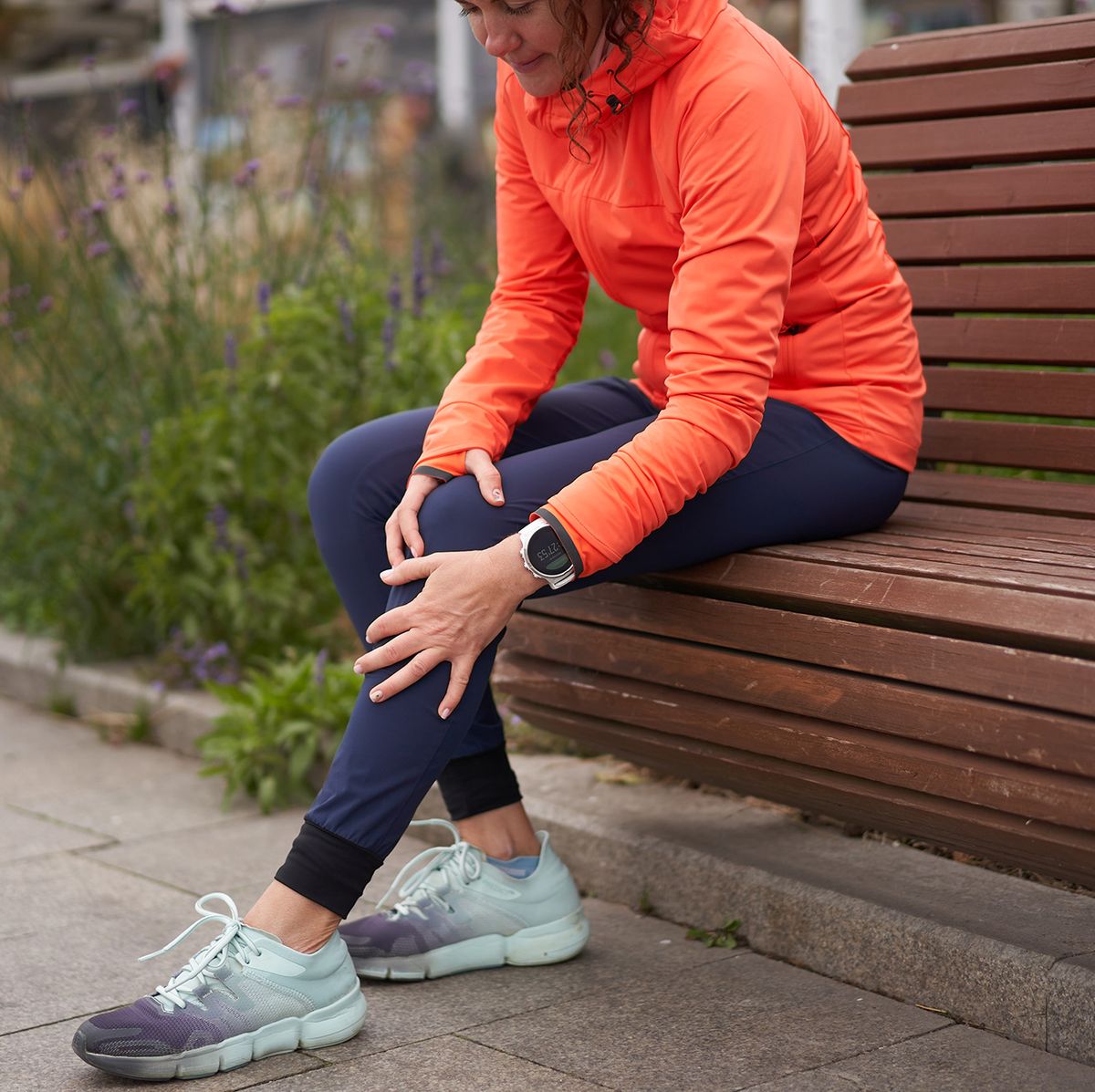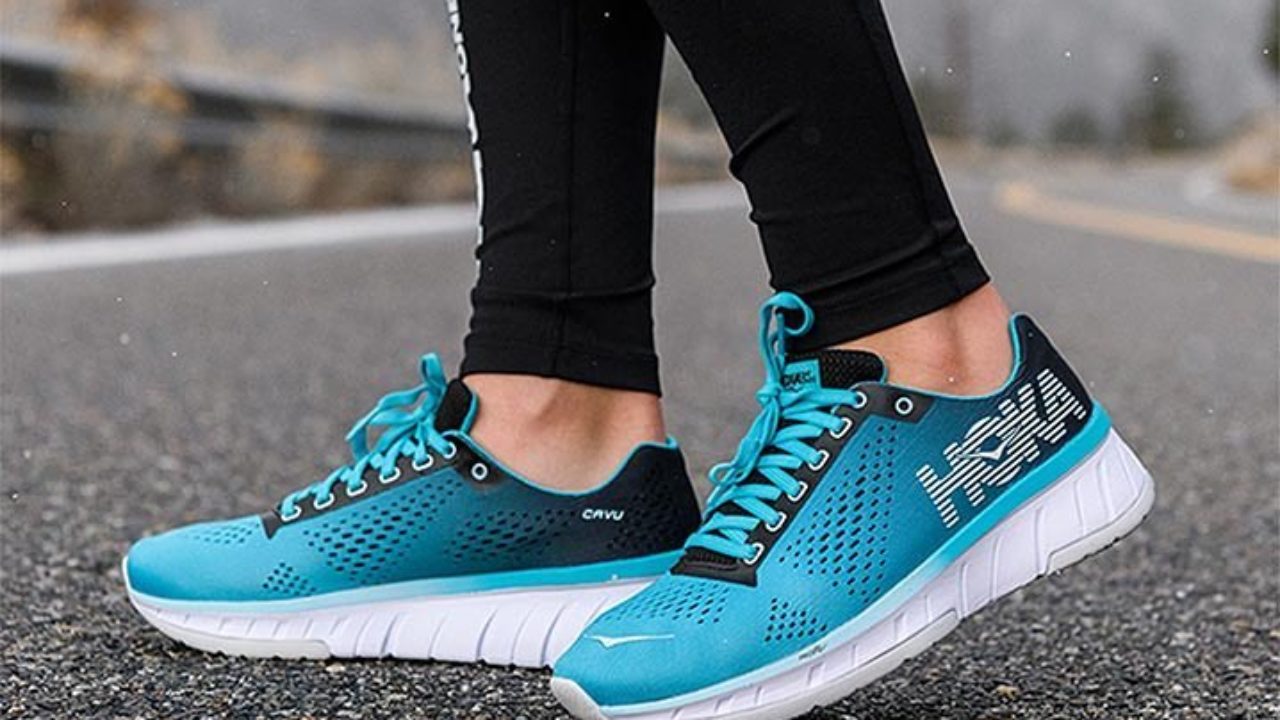If you are looking for a way to reduce your knee discomfort and improve your running performance, then investing in a good pair of running shoes for knee pain can be the answer.
You don’t have to suffer from knee pain anymore – this guide will provide you with all the information needed to make an informed decision and feel better while running.
The relationship between footwear and knee pain can be complex, but it is more important than ever to understand how wearing the right running shoes for knee pain can help reduce discomforts and injuries caused by running or other forms of exercise. This guide will provide an overview of what one should look for in a proper running shoe, how to choose the best running shoes for knee pain, and why having the right footwear is so important when it comes to mitigating discomfort caused by physical activity.
First, it is essential to recognize that different types of footwear are designed with different goals in mind. Many shoes are designed specifically with ankle support or shock absorption in mind, while others prioritize lightweight construction over comfort or cushioning. The key is to consider your own individual needs when shopping for a shoe that can provide you with proper support and stability while also eliminating aches and pains due to ill-fitting gear or poor construction.
Understanding Knee Pain
For survival, humans depend on the interaction of their brain, muscles, bones and joints. Joints are responsible for allowing different parts of the body to move in relation to each other. Normally joint pain occurs when any of these components become damaged or worn.
Knee pain is one of the most common types of pain that result from joint damage. The knee is a major weight-bearing joint and it is subject to wear-and-tear that often leads to pain and discomfort. Many people suffer from this type of joint pain due to underlying medical conditions such as arthritis, bursitis and tendonitis, or physical activities such as running or cycling that strain this joint beyond its limits. Other causes may include aging, overuse or injury.
The most important step in determining how best to mitigate knee pain is understanding its cause so an appropriate treatment plan can be developed by you and your healthcare provider. Therefore, it’s important as well to have a plan for correctly diagnosing the root cause of your knee discomfort involving a physical examination and possibly imaging studies such as X-rays or MRIs if needed. After a diagnosis is established then treatment options are discussed based on underlying conditions, family history and lifestyle factors like running form, normal gait patterns and terrain preferences.
Causes of knee pain
Knee pain can have many causes, including overuse, muscle strain, and injuries to the muscles, ligaments, and cartilage of the knee joint. It is important to cautiously identify the cause of your knee pain in order to properly treat it.
Common causes of knee pain include:
- Arthritis: Inflammation from arthritis (such as osteoarthritis or rheumatoid arthritis) can lead to widespread joint pain and swelling in the knee area.
- Patellofemoral Pain Syndrome: Pain felt on the front of the kneecap due to too much stress on the patella (kneecap).
- Chondromalacia Patellae: Softening or breakdown of cartilage around the kneecap caused by misalignment.
- Tendinitis: Overuse or repetitive strain injury which usually causes a dull ache in the front part of your knee.
- Iliotibial Band Syndrome (ITBS): Tightness in an IT band leading to difficulty extending your leg and experiencing sharp pains while walking or running downhill.
- Meniscal Tears/Injuries: Tears in cartilage between thigh bone and shin bone which lead to joint instability and swelling.
- ACL Injuries: Damage caused to a ligament connecting thigh bone and shin bone due to hyperextension or overstretching.
Symptoms of knee pain
Knee pain is a common complaint among runners, especially when wearing inadequate shoes. Running shoe technology can make all the difference when it comes to maintaining your knees’ health and easing discomfort. Knee pain can make running a difficult activity, and if you suffer from chronic knee pain, then proper running shoes should be your first line of defense.
The symptoms of knee pain will depend on the cause of your issues. Some common symptoms include:
- Tenderness or stiffness in the joint
- Swelling and warmth around the joint
- A grinding or popping sensation when walking or running
- A feeling of instability or “giving way” under the joint
- Weakness in leg muscles that support the knee joint
If you are experiencing any of these symptoms while running, it is essential that you speak with your doctor to identify the root cause of your knee pain and determine which treatment options are best for you. Wearing proper running shoes for knee pain can play an important role in alleviating discomfort and preventing further damage.
The Role of Running Shoes in Alleviating Knee Pain
When choosing running shoes for knee pain, it is important to understand the role they play in reducing discomfort. High-quality running shoes cushion impact and offer support to the knees when running. Cushioning materials in the sole help absorb shocks while supportive features around the foot keep the foot stable during activity. The right pair of shoes can help decrease strain on your knees and protect them from potential injury while offering needed comfort during runs.
It is also essential to select a design that matches with your gait preference and cushioning requirements that suit your individual needs. Various models feature different types of sole construction, cushioning materials, and support systems which change how they perform in tension, flexibility, and arch support—all important factors for alleviating knee pain when running. Additionally, motion control technology helps reduce overpronation (the inward roll of feet when walking) which can be an underlying cause of knee pain when running as well as improving shock absorption. Quality midsoles also play an important role in protecting knees; targeted high-density foams respond and diffuse pressure for increased shock reduction.
Ultimately, finding the right pair of running shoes for knee pain can significantly aid in alleviating discomfort and improve performance during runs. Features such as advanced cushioning materials and extra midsole coverage help to provide relief by supporting key areas while reducing potential strain involved in repetitive use. When selecting a new pair of running shoes remember to look at additional features such as stability elements and motion control components that may be beneficial depending on individual requirements before making a purchase decision.
The impact of running on knee joints
Running is an effective form of exercise, however, it should not be taken lightly as it can cause pain in the knee joints if done without proper technique and equipment. When running, your body’s weight is unevenly distributed across your legs and feet which can lead to destabilisation. This places a lot of pressure on your joints, particularly on the knees resulting in chronic or recurrent pain.
To tackle this issue and make running more comfortable for those with sore knees, investing in suitable running shoes for knee pain can be immensely helpful.
Running shoes designed for knee pain help absorb impact related to repetitive movement like jumping or running. This decreases stress on the knees as most of the shock is absorbed by the shoes themselves thereby protecting the joint from further damage and helping ease discomfort. Additionally, a good pair of running shoes for knee pain will have shock absorbent midsoles such as air cushion technology that helps minimise strain and reduce impact forces put on your joints when you land from a jump or take off from a sprint. Furthermore, some running shoes are designed with additional features such as motion control inserts that help stabilise your foot while you’re moving which is useful if you’re prone to getting sore knees while running.
The importance of choosing appropriate running shoes
Choosing the proper running shoes can be a difficult decision, especially with so many styles, sizes and brands available. But it is important to choose a shoe that fits your needs in terms of cushioning, flexibility and durability. When it comes to knee pain specifically, a few important factors should be considered when choosing running shoes.
First, the right type of support should be chosen for your feet—especially if you have problems with overpronation or fallen arches as these conditions can lead to knee pain. Shoes with built-in motion control features or extra arch support will help reduce the strain on the knees caused by these misalignments.
Second, cushioning is essential in providing protection against ground shock and impacts that travel up through your feet to your knees while running. Shoes made from natural materials usually provide better cushioning than those made from synthetics as they have more flexible soles. Look for shoes with plenty of cushion at the heel where most of the impact is concentrated when running.
Third, shock absorption is also key in alleviating knee discomfort. Shoes designed with thicker midsoles provide greater shock-absorbing properties because they are designed to flex and absorb ground impact better than soles that are too thin and stiff. Additionally, look for special shock-absorbing insoles that cushion the foot’s path through each step on a run and help reduce stress on the entire body including the knees.
Features of running shoes that help alleviate knee pain
When choosing running shoes to help with knee pain, there are several features to look for in order to provide the greatest benefit.
Shock Absorption- Good cushioning in the shoe helps reduce the force of impact placed on the knee joint by reducing shock waves that can radiate through the legs when running. Look for shoes that have cushioning in the midsole and outsole, and double check to make sure it is evenly distributed from heel to toe.
Arch Support- Shoes with good arch support helps to dissipate shock during impact as it disperses weight transfer across different parts of the foot instead of a single area. Opt for shoes with a semi-rigid midsole that provides stability throughout a runners stride as this will be more helpful than higher arch support alone.
Weight of shoe – A lighter weight shoe is better on the knees because it requires less effort when running and reduce overall fatigue. It’s best to choose a shoe which offers more protection while still being lightweight, so you don’t sacrifice performance while helping alleviate knee pain.
How to Choose Running Shoes for Knee Pain
Choosing the right shoes to reduce knee pain while running can be difficult. Here are a few considerations to keep in mind when selecting a pair:
-Consider Your Gait: Your gait – or how your feet affect the ground when you run – is an important factor to consider when choosing a pair of shoes. Motion control and cushioning technology may be needed if you over pronate (or roll inward) or have high arches. Be sure to get your gait analyzed by an experienced running store employee or podiatrist before purchasing running shoes for knee pain.
-Incorporate Stability: Many runners with knee issues find benefit from incorporating stability features into their footwear – such as built-in arch support, reinforced midsoles, and sturdy rubber outsoles – to help absorb shock for reducing pressure on the patella and lower joint areas.
-Opt for Heavier Shoes: It might seem counterintuitive but going for heavier running shoes with higher quality materials that are more durable can protect your joints from having to bear extra load over time which may cause further damage.
-Check Out Comfortability Guarantees:When shopping for the best fit, make sure you save those tags! Many retailers have comfort guarantees offering exchanges or refunds – some even for up to a whole year after purchase – so be sure to ask about return policies before leaving with your new purchase.
Factors to consider when choosing running shoes
When you’re looking for a new pair of running shoes to help with knee pain, there are several factors that you need to consider. Before you make your purchase, it’s important to understand how the right shoes can contribute to your health and overall comfort. Here are some key factors to think about when selecting running shoes.
Support: Running shoes should provide enough support so that they can help reduce pressure on your feet and keep them in an ideal position without causing stress or injury. Supportive cushioning is also important for absorbing shock, which will decrease the force that goes up into your leg and leg muscles as well as providing support for good posture.
Durability: Make sure you select a running shoe with a high-quality sole that is made from material that is designed to last for miles of pounding on pavement and trails. Most running shoes will have several thousand miles of cushioning before it needs replacement, so look for something that has plenty of extra cushioning built in so it stands up to repeating usage.
Arch Support: Most runners need arch support when they are going long distances and this feature gives an additional layer of protection against fatigue-causing pronation while protecting against inflammation and possible injury due to excess stress on the feet during extended runs. A comfortable fit should also be taken into account when selecting a pair of running shoes, as this will help increase the chances of maintaining healthy feet and overall fitness goals in the long run.
Tips for trying on running shoes
When choosing a running shoe for knee pain, there are a few important points to consider. It’s best if you can try on the shoes before purchase and test them in the store.
First, ensure that the shoes fit properly according to your foot size and shape. Correctly fitting shoes should provide ample room for your toes without being too restrictive over the tops of your feet. They should also provide arch support and a snug heel fit to ensure stability.
When you’re trying on different pairs of shoes, make sure you walk or jog around the store while wearing them, as this will help you evaluate their comfort level. Additionally, be aware that your feet swell throughout day so it’s best to shop sometime after lunch when they’re at their largest size.
Finally, pay attention to how much cushioning is provided when testing out running shoes – soles should absorb shock during long runs and create stability with every step – otherwise, discomfort is most likely going to occur.
Popular brands of running shoes for knee pain
Identifying the right running shoes for knee pain is an important process, and there are a few popular brands on the market that can provide quality support and cushioning. Each shoe offers different features such as cushioning, arch support, and durability.
The main brands include Asics Gel, Adidas Performance Ultra Boost, Brooks Launch 5, Nike Air Max Motion 2, Saucony Zealot IS0 3 and Mizuno Wave Rider 22. Each of these shoes provide different qualities in terms of comfort and support. The Asics Gel offers strong cushioning to help absorb some of the shock that could cause knee discomfort while running while the Brooks Launch 5 provides maximum breathability along with their light weight. The Nike Air Max Motion 2 has removable insoles to allow comfort customization along with good arch support and heel stability while the Saucony Zealot IS0 3 gives good traction along with a very responsive sole and flexible construction. Finally,the Mizuno Wave Rider 22 gives full length cushioning for extra comfort along with a smooth transition from heel-to-toe.
It’s also important to look at how well matched these shoes are for your foot shape in order to ensure maximum comfort as well as long-term durability of your shoe purchase. Some running shoes for knee pain might not offer complete relief but still be very comfortable walking or even running shoes depending on your needs. Your physical therapist or doctor can often help you make an informed decision if you’re not sure which type might be best for you.
Conclusion
In conclusion, the best running shoes for knee pain can vary greatly from person to person. Your individual needs are the most important factor to consider when selecting the right shoe for your feet. A supportive and balanced design should help bolster your arch support, cushioning, and overall stability during running.
As with any medical condition, it’s always best to speak with your doctor or physical therapist before embarking on any type of exercise program. With the right shoe and proper training, you can minimize your risk of developing knee pain while running.
FAQ’s
Do running shoes reduce knee pain?
Yes, running shoes can help reduce knee pain by providing proper cushioning and support during physical activity.
What kind of running shoes help knee pain?
Running shoes with good shock absorption and stability features can help alleviate knee pain. It’s best to look for shoes with ample cushioning and support in the midsole and outsole.
Are running shoes good for arthritic knees?
Running shoes can be good for arthritic knees as they provide cushioning and support to the joints during physical activity. However, it’s best to consult with a healthcare professional to determine what type of shoes are best for your specific needs.
What kind of shoes are good for your knees?
Shoes with good shock absorption and support features are generally good for your knees. Look for shoes with cushioned midsoles and outsoles, as well as proper arch support.
What are the best shoes for arthritis in feet and knees?
Shoes with a wide toe box, good arch support, and ample cushioning are often recommended for individuals with arthritis in their feet and knees. Consult with a healthcare professional for personalized recommendations.
Are running shoes good for arthritic feet?
Running shoes can be good for arthritic feet as they provide cushioning and support during physical activity. However, it’s important to choose shoes that are appropriate for your specific condition and consult with a healthcare professional.
Are Skechers good for foot arthritis?
Skechers offers a range of shoes with different features, including cushioning and ssupport that may be suitable for individuals with foot arthritis. However, it’s best to consult with a healthcare professional for personalized recommendations.
Are flat shoes better for your knees?
Flat shoes can be beneficial for some individuals with knee pain, as they promote a more natural foot position and can reduce stress on the knees. However, it’s important to choose shoes with proper support and cushioning for your specific needs.
Are soft or hard shoes better for knee pain?
Shoes with moderate cushioning and support are generally recommended for individuals with knee pain. Both soft and hard shoes can be suitable as long as they provide adequate support and cushioning.
Can wrong shoes cause knee pain?
Wearing shoes that don’t provide proper support or cushioning can lead to knee pain. It’s important to choose shoes that are appropriate for your specific needs and to consult with a healthcare professional if you experience persistent pain.
See Also-
- Best running shoes under 100
- Best puma running shoes
- Best running socks for women
- Best reebok shoes for running
- Best running sunglasses for women


